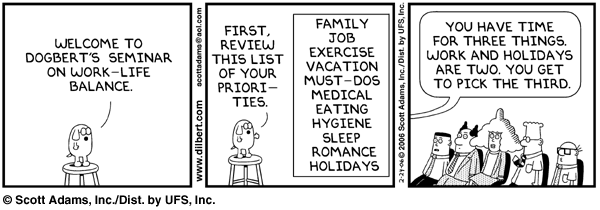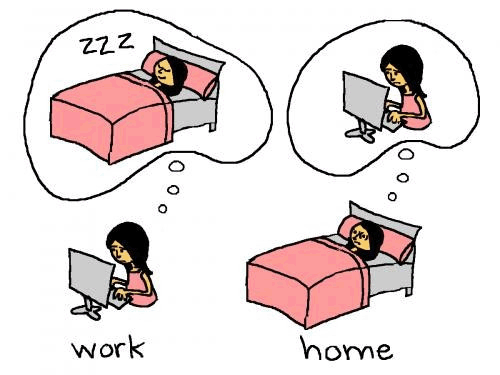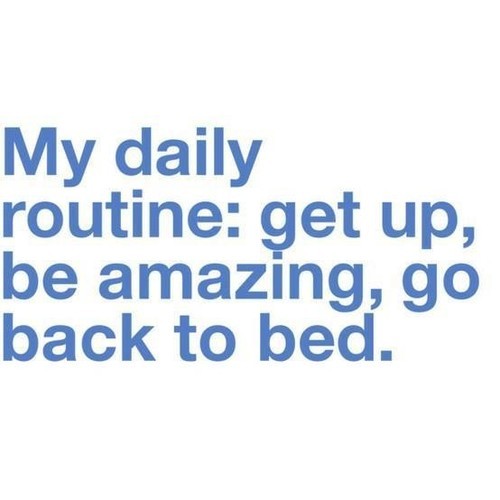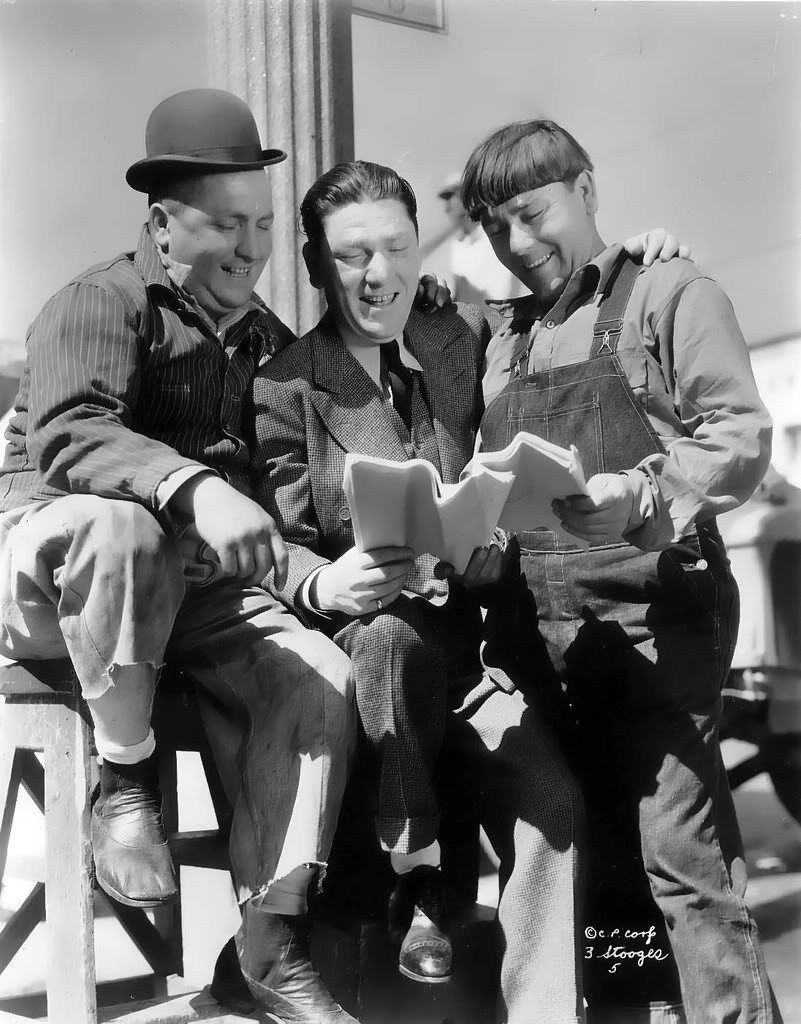
As many of you know, I am more than aware of the impact that not having a work-life balance can have on one's health, emotionally and physically.
After my piece appeared in the Globe and Mail, Dr. Greg Marcus, Silicon Vally work-life balance guru reached out to me and we had a very interesting chat. Well actually, I babbled on to him and he listened very kindly. I could tell he must be a good coach!
It seems that though New Brunswick is a fraction of the size of the part of California in which Greg lives, the issues I faced were identical to what he faced before he left his job and are identical to those experienced by the many individuals with whom he coaches.
Greg sent me his book to read and I am so glad that he did, as it was a revelatory experience.
I connected again and again with the stories Greg shares in the book and wished I'd read it before I left my job (which is not to say I still wouldn't have left anyway, but is to say I might have survived the experience a little more intact).
In a previous life, Greg was an MIT graduate, working for large corporations, doing cutting edge research and work and a true believer in the cult of work at all costs. Until the cost became too high and he realized this his idol didn't share the same values and feelings for him (since, by definition, organizations are not capable of having feelings).
The central conceit of the book is Marcus' belief that our places of work have become in many cases false idols, a concept which occurred to him during Yom Kippur. For those unfamiliar with Yom Kippur, it is the Day of Atonement for the Jewish faith that involves fasting from sunrise to sunset and prayers of reflection on one's life. A time for atonement, amends.
The idolatry metaphor is a good one. The corporation, and work in general, has become a 24-7 taskmaster, requiring our full love and attention, and often at the expense of the things that are most important to our well-being - our family and our health.
**********
A caveat here for those of you who are going to write and tell me that you love your job and are happy - I loved a lot of my job, too, and was very happy at times in my position(s) - and that therefore even if you are tethered to work, physically and emotionally, that's okay, I say "have at it". But I would also say that having balance is a good thing.
**********
Throughout the book, Greg uses case studies and offers helpful ideas and key questions for self-examination aimed to assist the reader to identify if they have an issue and how they can fix it.
However, let's face it - if you are drawn to this book, you have an issue. I was working so much and was so distracted constantly by the incoming emails and phone messages and the constant crises and documents, that even when I wasn't working, I was never, ever, truly "not working". And though there was an expectation that people should take vacations, the sheer volume of work piling up during our absence often leads people to continue to do some work (or even be called in for a crisis by the same boss who encouraged them to take a vacation), because the thought of returning to 2000 emails after a couple of weeks off made the vacation seem not really worth it.
 |
| This was so me... |
There was even a certain esprit-de-corps that existed, where we would all share war stories about having the shit kicked out of us constantly and working around the clock.
And while I worked very hard to make my children a priority, what I lost along the way was quality time with friends and quality time with myself, so that by the end I was dragging myself from day to day, bootstrapping it through meetings and long nights of work. And to be honest, in the end I didn't feel I was making enough of a difference in my job that it was worth getting sick for. I heard from a lot of people within the organization about how happy they were for me at being able to leave for my health's sake and wished they could do likewise. The silence from others, whom I had thought were comrades-in-arms, was deafening. Because dropping out is a cardinal sin when you are talking corporate idolatry.
Greg posits that organizations which are money driven are particularly susceptible to this type of corporate idolatry. I think that when the economy suffers, as is certainly the case in New Brunswick right now, the pressure to deliver gets jacked up even higher, both within the private and public sectors. Individuals with whom I chat with regularly across all levels within Government right now appear to me to be as demoralized as I've ever seen them, which makes sense given the need to find savings, not fill vacant positions (which in turn requires existing staff to work more and harder) and the ongoing uncertainty of future job cuts if the economy doesn't bounce back. Friends in the private sector are saying the same. And all of them mention a lack of balance, an expectation that they will work every evening and most weekends and be on call via email.

Of course there are ways around it that are less drastic than leaving one's job, and thank goodness Greg Marcus provides some helpful tools that can be used to recalibrate balance between one's workplace and one's home life.
And while a crisis often forces the change - in my case my father dying and my inability to sleep due to stress - we do our employees and our society a disservice if we allow it to get to that point.
A fundamental shift is starting to fester around the edges of our obsessed-with-work-and-getting-ahead culture. Organizations would do well to buy Greg's book and see what they might do differently, how their leaders can push back and create a different kind of workplace that values people's health and recognizes that if our whole sense of self comes from our jobs, we really have no sense of self, since the organization's sense of self does not come from us.

But most importantly, people who are currently experiencing this kind of stress need to read this book and take the baby steps necessary "to get a life". And I understand all too well that many of you who are reading this are frankly too busy to imagine taking the time to read this book and even the thought of that makes you feel stressed, so I say one thing: put it by the toilet. Surely to god you are taking a break for that!
If you are interested in buying the book or learning more about Greg and his Idolbuster Coaching Institute, click here.The book is also available to purchase from Amazon. The book is well written, a straightforward and compassionate read and leaves one with the feeling in the end that this cane be tackled if only there is a the will to do so.
Thanks Greg! And best of luck saving all of us who have or who are struggling to find a real work-life balance!


















































